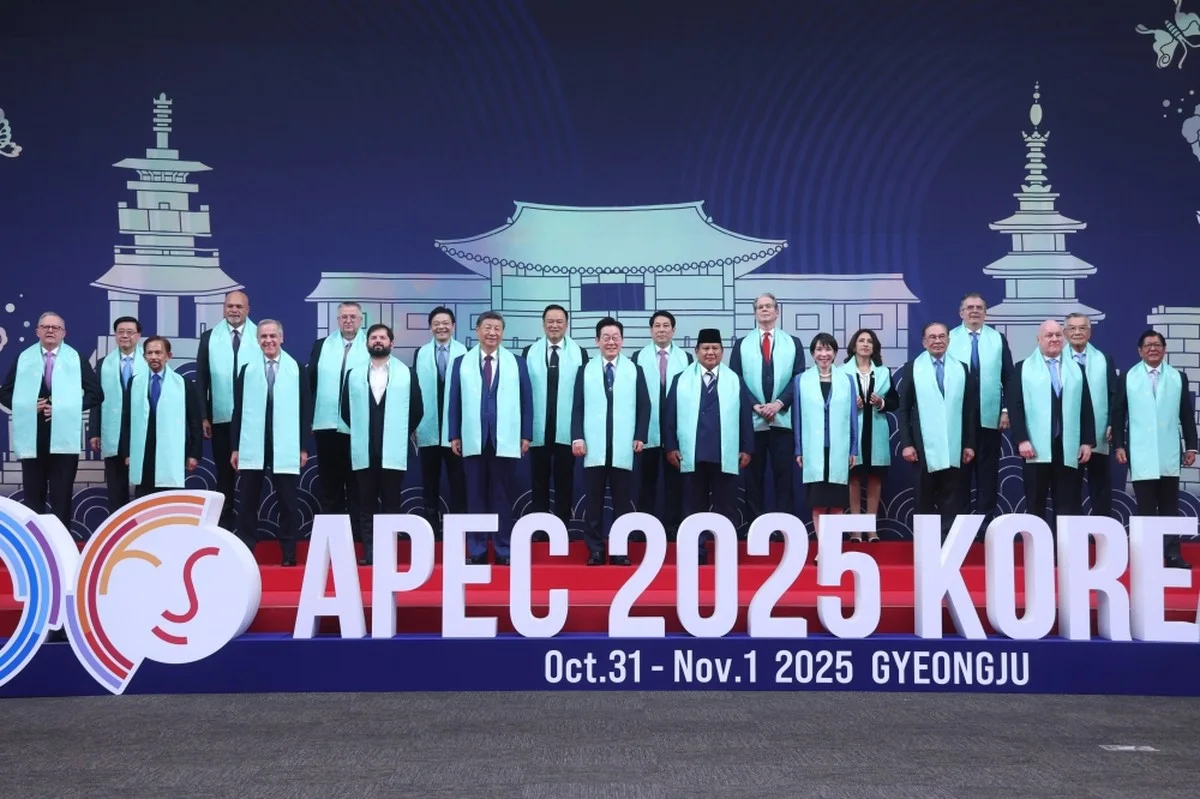01/11/2025
01/11/2025

GYEONGJU, South Korea, Nov 1, (AP): Leaders of 21 Asia-Pacific Rim nations wrapped up their annual summit Saturday with a statement underscoring regional economic cooperation, just days after the presidents of the United States and China agreed to dial down their trade war. After two days of the Asia-Pacific Economic Cooperation summit in the South Korean city of Gyeongju, APEC leaders issued a joint statement pledging greater cooperation to overcome shared challenges in a global economy hit hard by trade tensions between the U Sand China, the world’s two largest economies.
On Thursday, US President Donald Trump and China's Xi Jinping - who met on the sidelines of the APEC summit - dialed back earlier steps and agreed to de-escalate trade tensions. Trump, known for his dismissal of multilateralism, quickly left South Korea after the agreement with Xi, allowing the Chinese president to steal the limelight at the summit.
The joint statement declared that the APEC leaders "acknowledge the global trading system continues to face significant challenge.” "We reaffirm our shared recognition that robust trade and investment are vital to the growth and prosperity of the Asia-Pacific region,” it says. Jeonghun Min, a professor at South Korea’s National Diplomatic Academy, said the statement avoided direct language supporting "free and open trade,” but still managed to endorse economic cooperation and multilateralism, which embody "the very purpose of free trade "It wasn’t possible to leave that out entirely,” said Min.
The joint declaration also said that APEC members remain committed to the Putrajaya Vision 2040, a new 20-year growth vision adopted in 2020 that calls for a trade environment that’s "free, open, fair, non-discriminatory, transparent and predictable.” On Friday, Xi told the summit that China would support global free trade and supply chain stability - an apparent effort to position his country as an alternative to Trump’s protectionist policies.
In written remarks sent to a CEO summit held in conjunction with APEC, Xi said that "investing in China is investing in the future.” Xi also met with his Japanese, Canadian and Thai counterparts bilaterally on Friday. He met South Korean President Lee Jae Myung on Saturday for one-on-one talks that Seoul officials said would touch on efforts to achieve denuclearization of the Korean Peninsula.


